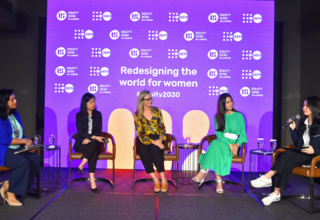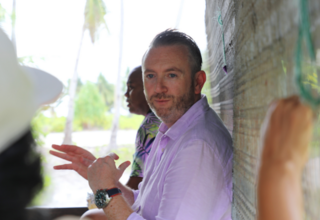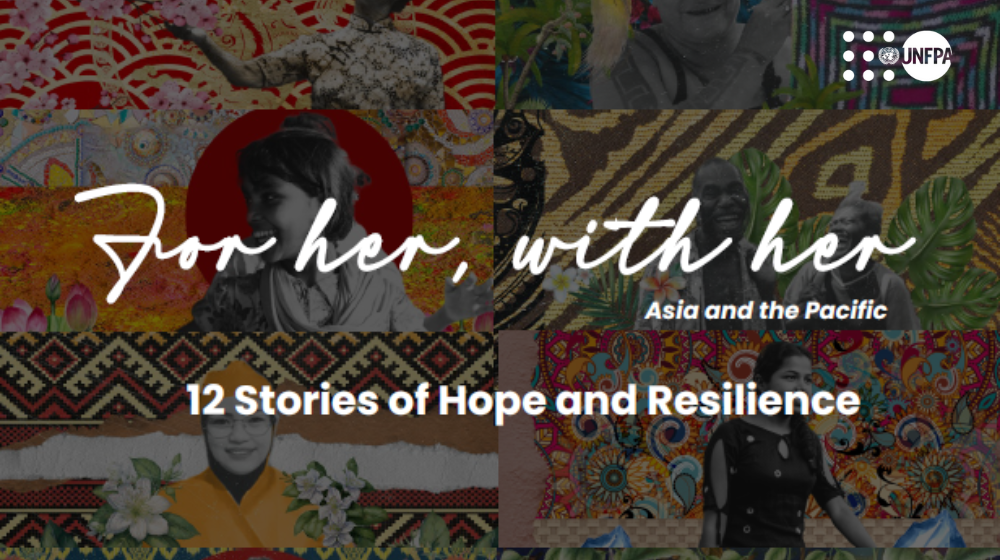Daw Lu Bu is a caseworker at a UNFPA-supported Women and Girls Centre in Myanmar’s conflict-ridden Kachin State. The Women and Girls Centres respond to and help prevent gender-based violence (GBV) in camps for internally displaced persons.
“One Sunday morning a camp leader called me at home. A 15 year old girl had been raped on her way home from town the evening before. I immediately went to the camp and met with her parents. I explained to them that she needed urgent post-rape treatment, to prevent pregnancy as well as infection, including HIV. This treatment has to be given within 72 hours of an incident, so she could not wait. The parents agreed, and the mother and I brought the young girl to the hospital for emergency care.”
“The parents did not want to report the rape to the police, and they did not want us to give the girl counselling. But at least we were able to help her avoid pregnancy and HIV infection.”
Vicious circle of domestic violence
Most of the women who seek Lu Bu’s help are experiencing domestic violence. Many are caught in a vicious circle of abuse because they don’t have the financial means or the social support structures needed for them to leave their husband. Even women who are repeatedly and seriously injured often choose not to report the crime or take legal action. So the case workers at the Women and Girls Centres have to be resourceful and find alternative ways of alleviating the women’s situation.
“One woman came to me with several injuries and bruising on her face. Her husband had abused her. First we accompanied her to the hospital, where she received medical care. Then we provided counselling to help her deal with the trauma. She did not want to go to the police, so instead we contacted the male GBV volunteers in her camp. They spoke with the husband man-to-man to try to make him change his behaviour. After this intervention, both male and female GBV volunteers in the camp have monitored the family, and the situation is now better.”
“I want to give them access to justice”
Women who have experienced gender-based violence are often referred to as “survivors” rather than “victims”. The purpose is to focus on women’s empowerment rather than portraying them as passive victims. But the term “survivor” can be misleading since it implies that just because a woman seeks help, the abuse will stop. Research shows that the majority of domestic violence cases are repeat incidents. Most women who experience domestic violence will be subjected to more than one instance of abuse by the same partner. It is very common for a man with a history of abuse to be violent to his partner even after he has received counselling.
“The most difficult part of my job is the repeated cases, where the husband will not change his behaviour, where the wife is not able to leave, and where she is abused again and again.”
Lu Bu remembers each heartbreaking case she has ever managed. She sometimes wishes she could forget the most gruesome details, but she cannot help but carry the pain of abused and desperate women and girls inside her.
“I chose this work because I am a woman in Kachin State, and I see what is happening to women in Kachin State: They are trafficked to China, abused by their husbands, sexually assaulted by strangers. I want to give these women access to medical care and counselling. But not only that. I want to give them access to justice. This is the only way to prevent more and more violence.”
UNFPA’s gender-based violence programme in Kachin includes eight Women and Girls centres and both male and female volunteers. Together they cover 38 camps for internally displaced people and their host communities in both government controlled areas and non-government controlled areas. The programme is supported under the Women and Girls First initiative, which is funded by Australia, Canada, Finland, Italy, Sweden and the UK.




